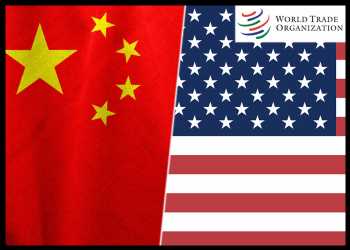
China Retaliatory Tariffs On US Imports Violated International Trade Rules: WTO
August 17, 2023The World Trade Organization (WTO) has ruled that retaliatory tariffs imposed by China over U.S. steel and aluminum tariffs have violated international trade rules.
In response to U.S. steel and aluminum tariffs, China in 2018 imposed additional import duties targeting 128 U.S. items worth $3 billion, including farm products.
In its ruling Wednesday on the long-standing trade dispute between the two major economic powers, a World Trade Organization dispute panel said the measure is inconsistent with various articles of the General Agreement on Tariffs and Trade (GATT).
The panel rejected China’s argument that the U.S. Section 232 actions on steel and aluminum are safeguard measures that may be “rebalanced” under WTO rules.
In its panel report released Wednesday, WTO recognized that the U.S. Section 232 actions are security measures and that China illegally retaliated with sham “safeguard” tariffs.
The office of the U.S. Trade Representative hailed the decision by the WTO Panel.
“China’s decision to pursue this dispute highlights its hypocrisy by both suing the United States in the WTO and at the same time unilaterally retaliating with tariffs,” USTR Spokesperson Sam Michel said in a statement.
He urged that WTO reform must ensure that issues of national security cannot be reviewed in WTO dispute settlement. “Furthermore, the WTO has proven ineffective at addressing non-market excess capacity from China and others that is an existential threat to market-oriented steel and aluminum sectors and, through the effects on imports, a threat to U.S. national security, including by eroding U.S. steel and aluminum manufacturing capacity.”
The United States condemned “China’s refusal to correct its severe and persistent non-market excess capacity for steel and aluminum that is at the heart of a global crisis that led to the U.S. Section 232 national security actions.”
Source: Read Full Article


